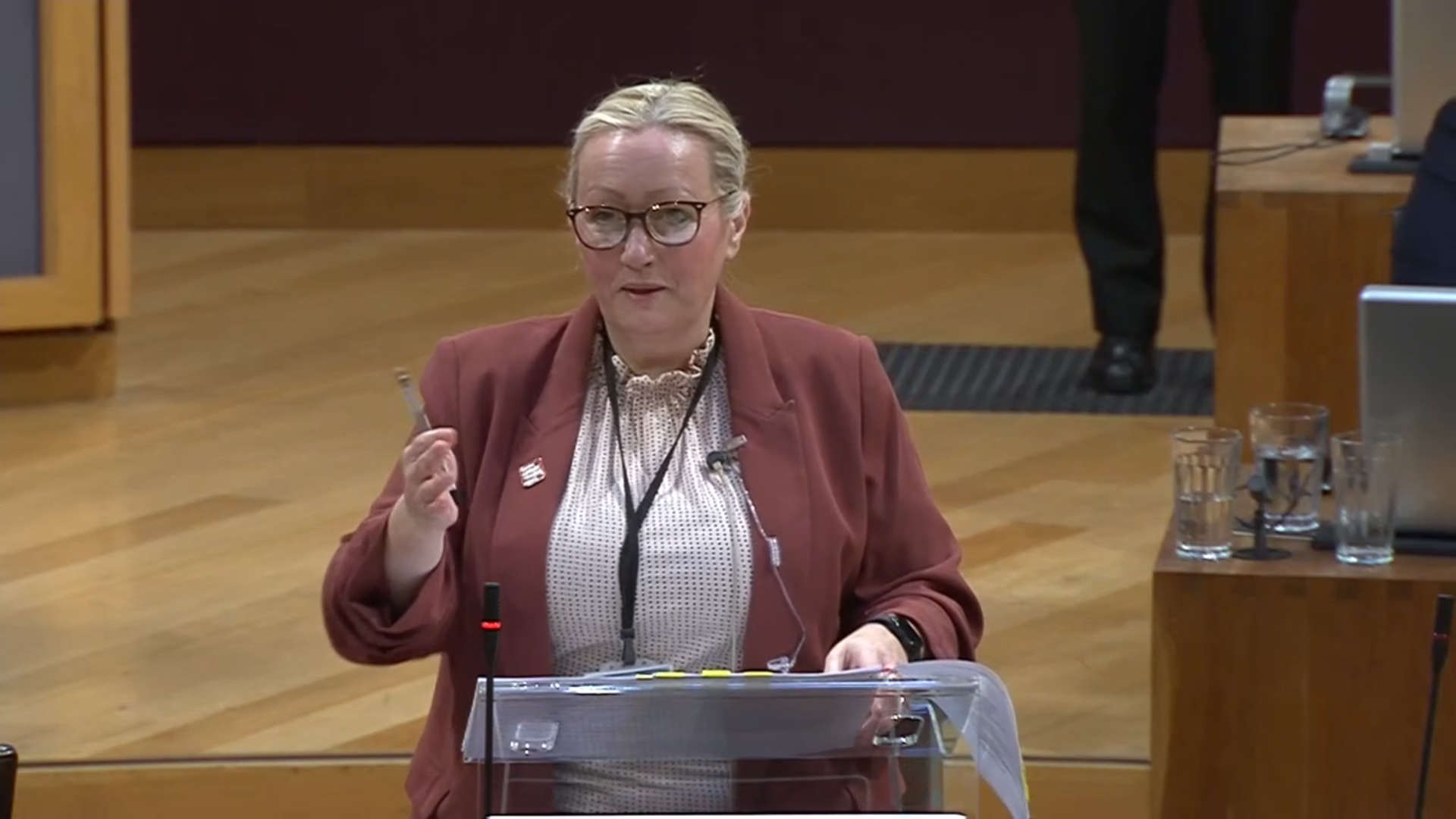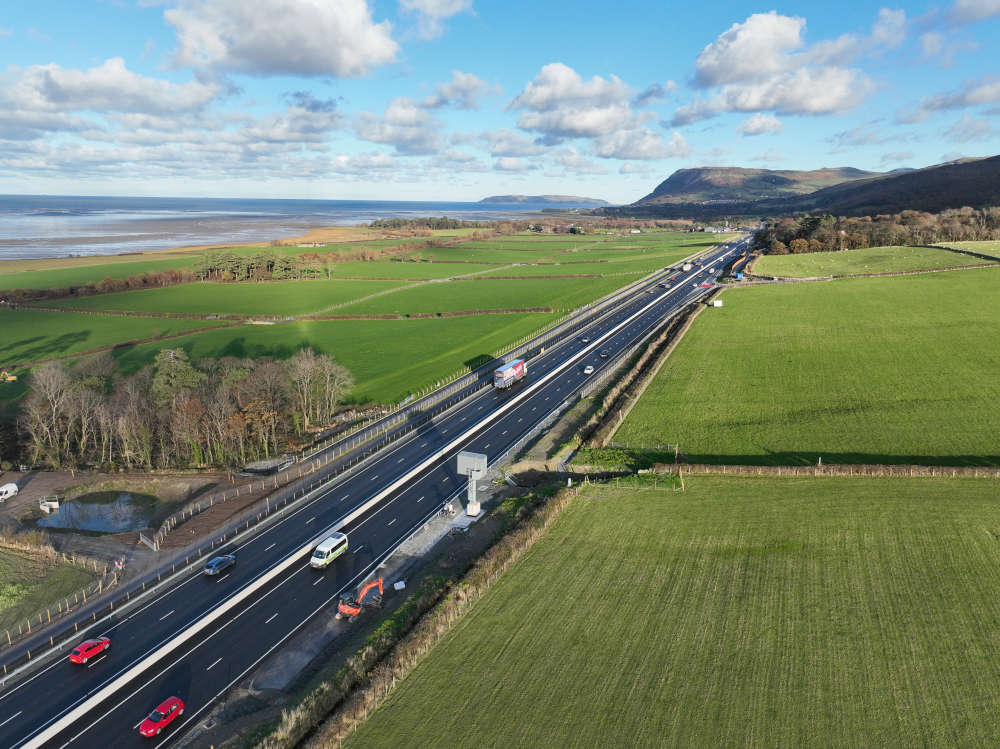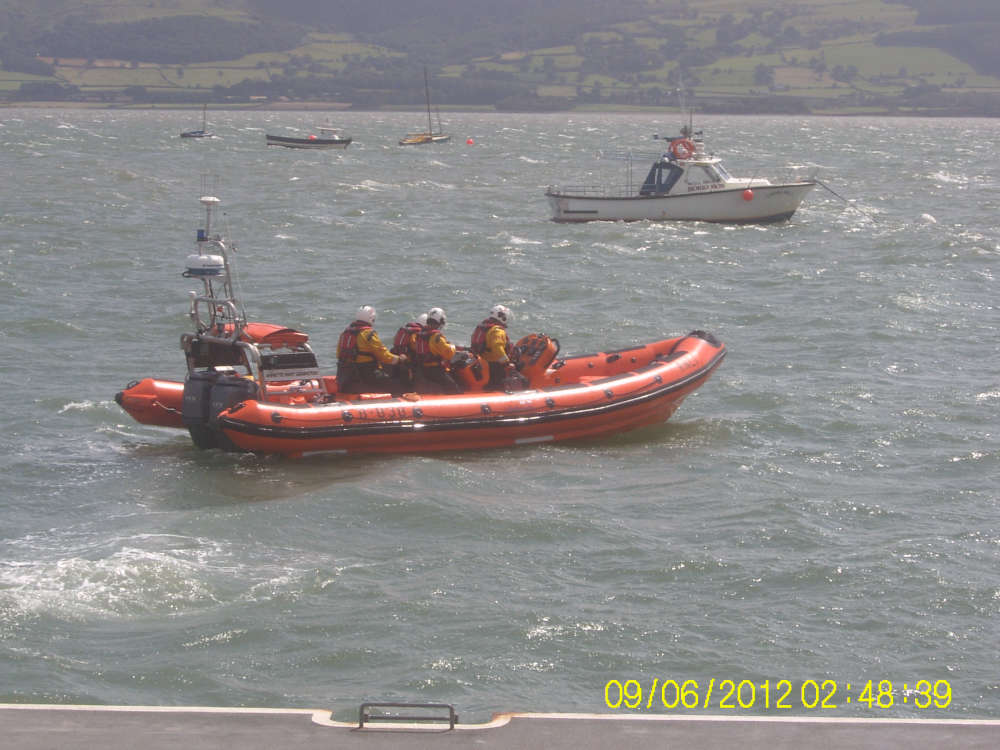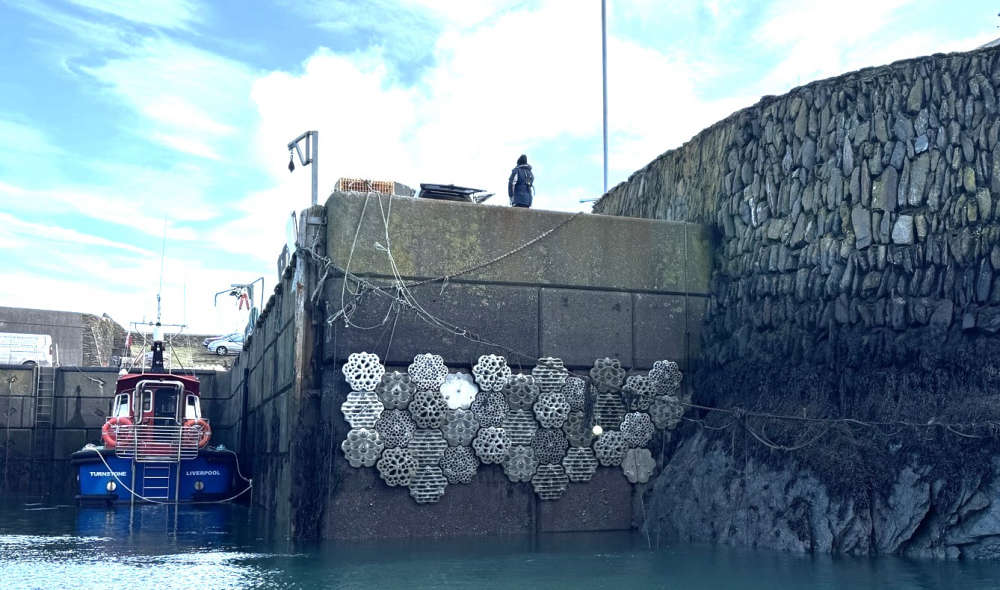
Wales' economy secretary vowed to make speeding up planning decisions a top priority as part of a push towards clean energy.
Rebecca Evans committed to a sector deal with Wales' renewable energy industry, which she said will include action to accelerate planning decisions and provide greater clarity.
Ms Evans warned council planning departments were "stripped back" due to austerity as she provided an update on the green economy to the Senedd on Tuesday.
She said: "For their part, I expect the sector to support our ambitions for local ownership and the development of skills and investment in our communities, including the environment."
The economy secretary said the UK Government's industrial strategy, unveiled on Monday, identified the role of green industries in driving economic growth.
'Transformation'
Ms Evans also pointed to a Welsh Government consultation on implementing reforms aimed at streamlining the consenting process for major infrastructure projects.
She argued Wales is leading the way in establishing public energy companies, pointing to Trydan Gwyrdd Cymru and Ynni Cymru, which will develop projects and retain income.
The minister told the debating chamber that Wales has an onshore development pipeline of more than 5GW, and a further 18GW through fixed and floating offshore wind.
Ms Evans added that the Welsh Government will hold a consultation on carbon capture and storage technologies as well as hydrogen in the coming weeks.
She said: "Wales has its place in history using our natural resources to power the industrial revolution but we enter a new era where the power we need across our economy and wider society supports a new industrial transformation for our economy and our communities."
'Obstacles'
Samuel Kurtz warned Wales is far from unlocking its potential for renewable energy.
The Conservatives' shadow economy secretary said investors and developers are being held back by countless planning barriers.
He told the Senedd: "It is vital that these obstacles, like delays in consenting, planning, grid-capacity issues, skills shortages and supply-chain readiness are addressed swiftly."
Ms Evans recognised grid infrastructure constraints, saying the first minister has made the case and the UK Government "absolutely does get that".
Mr Kurtz also raised concerns about a skills shortage and urged the Welsh Government to "tear down" barriers for small businesses in the supply chain.
His Conservative colleague Paul Davies called on ministers to prioritise investment that leverage private sector funding to make Wales a global leader.
'Exploited'
Luke Fletcher, Plaid Cymru's shadow economy secretary, warned of history repeating itself.
"Wales is, once again, being cast in the role of resource provider," he said. "Wind, wave, land and sea bed are exploited while the financial gains and innovation returns are largely captured by external actors."
Calling for more powers, Mr Fletcher pointed out that larger renewable energy projects that exceed 350MW remain outside of Welsh control.
He said the UK Government has roundly rejected calls to devolve the Crown Estate despite Welsh Labour's support and powers already being given to Scotland.
Plaid Cymru leader Rhun ap Iorwerth expressed concerns about plans for solar farms in his Ynys Môn constituency covering thousands of acres of good agricultural land.
'Greenwashing'
His predecessor Adam Price accused the UK Government of creating a narrative that projects must be large scale, swift and low cost regardless of other considerations.
Similarly, Jane Dodds, for the Liberal Democrats, called for investment in cable ploughing to avoid the use of pylons snaking through the countryside.
And Carolyn Thomas raised concerns about fossil fuel companies "greenwashing" as she criticised plans for a "massive" carbon dioxide pipeline from north Wales to Liverpool.
Alun Davies, a fellow Labour backbencher, warned it will be difficult for the Welsh Government to achieve any of its ambitions without devolution of the Crown Estate.
Calling for equitable treatment, he suggested some parts of Wales, such as his Blaenau Gwent constituency, have shouldered more responsibility for clean energy than others.







 'Renew Bangor': two High Street businesses evicted
'Renew Bangor': two High Street businesses evicted
 Aber Tai’r Meibion 'more resilient' two years on
Aber Tai’r Meibion 'more resilient' two years on
 Holyhead man jailed for assaulting police officers
Holyhead man jailed for assaulting police officers
 Two callouts for Beaumaris lifeboat
Two callouts for Beaumaris lifeboat
 New living seawall at Amlwch Port
New living seawall at Amlwch Port


